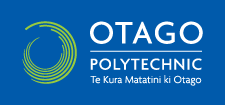E-Activity: Remix and reflection
e-Learning activity summary | |
|---|---|
| Title: | Reuse, revise, remix and redistribute Creative Commons resources plus reflection |
| 2 hours | |
| Linked to course assignment for formal assessment services and optional activity for certificate of participation. | |
Start here
Stimulus resources
|
Purpose
The purpose of this E-Activity is to:
|
Tasks
- Choose a concept or idea on which to base an interesting blog post to share with fellow students. Think carefully: the nature of the topic you post may impact own the ownership of the copyright of what you are posting in terms of your employment agreements or contracts.
- Think about the Creative Commons license you would like to apply to your blog post as this may influence your search parameters for the required open materials you source for reuse in this post.
- Before you commence searching for Creative Commons resources, please read the learning outcome actions below regarding the license requirements for artefacts to be included in your blog remix.
- Search for openly licensed text relating to your concept or idea which you can copy, reuse and modify for your blog post.
- Search for a few images you could potentially use to illustrate or add visual appeal to your blog post. In this way you will be able to choose the "best" image from a short list. Remember to bookmark or keep the urls of the images you find.
- Tip: When using search engines to narrow down options for particular license choices always check the license and or terms of reference at the source site. When in doubt -- consider the source to be all rights reserved even if the search engine suggests otherwise.
Learning outcome actions
Prepare a blog post of approximately 700 - 900 words in two parts:
|
Assessment rubric
Competency statements
- Knowledge of license types: Learner demonstrates knowledge of license types by identifying and reusing source materials marked with three different CC licenses.
- Knowledge of legal requirements: Learner demonstrates knowledge of remix by sourcing content of three different CC licenses which can be legally remixed, applies a legally permissible license for the derivative work and complies with best practices for attributing the sources. (However, due to the complexities of copyright, peer evaluators are not tasked with assessing the legal compatibility of the post but are invited to use the comments field to note any obvious license incompatibilities.)
- Critical thinking: Learner demonstrates critical thinking by assessing and evaluating the license choices made for this activity.
- Reflective learning: Learner demonstrates reflective practice by providing examples of how this activity has contributed to new insights on the remix of openly licensed material.
- Peer support: Learner provides peer-learning support by objectively evaluating a minimum of three of the same e-Learning activities of fellow students as assigned by the peer evaluation system.
Evaluation criteria
Peer evaluators should:
- Confirm that the content of the post is related to the activity. For example, confirming that the learner registered the correct url for the submission.
- Evaluate the answer using the rubric below according to the criteria of: Completeness, critical thinking, and reflective learning.
- Award an overall rating for the post, that is: Unsatisfactory, Acceptable, Excellent.
| Completeness (4 points) | |
|---|---|
| Not achieved 0 Points |
When rating this post, visit the source materials to verify that the correct Creative Commons license was applied in the attributions. One or more of the following is missing from the post:
|
| Achieved 2 Points |
When rating this post, visit the source materials to verify that the correct Creative Commons license was applied in the attributions. The post contains each of the following items:
|
| Merit 4 Points |
As for Achieved but in addition, the post includes one or more of the following
|
| Critical thinking (2 points) | |
|---|---|
| Does the learner think critically about the license choices and the implications of those choices? | |
| Not achieved 0 Points |
The learning reflection is missing or statements relating to licenses choices are superficial without analysis. |
| Achieved 2 Points |
The learner provides analysis and evaluation of the license choices made. |
| Merit 4 Points |
In addition to the analysis and evaluation of the license choices, the learner considers the implications of these choices and provides valuable advice with justifications on alternatives which educators should consider. |
| Reflective learning (2 points) | |
|---|---|
| Does the learner provide examples of how this activity has contributed to new insights on the remix of openly licensed material? | |
| Not achieved 0 Points |
No references to new insights. |
| Achieved 2 Points |
An average reflection which references new insights gained from this activity |
| Merit 4 Points |
An excellent reflection which highlights exceptional insight into the complexities of remixing resources and how this experience will inform new practice. |

